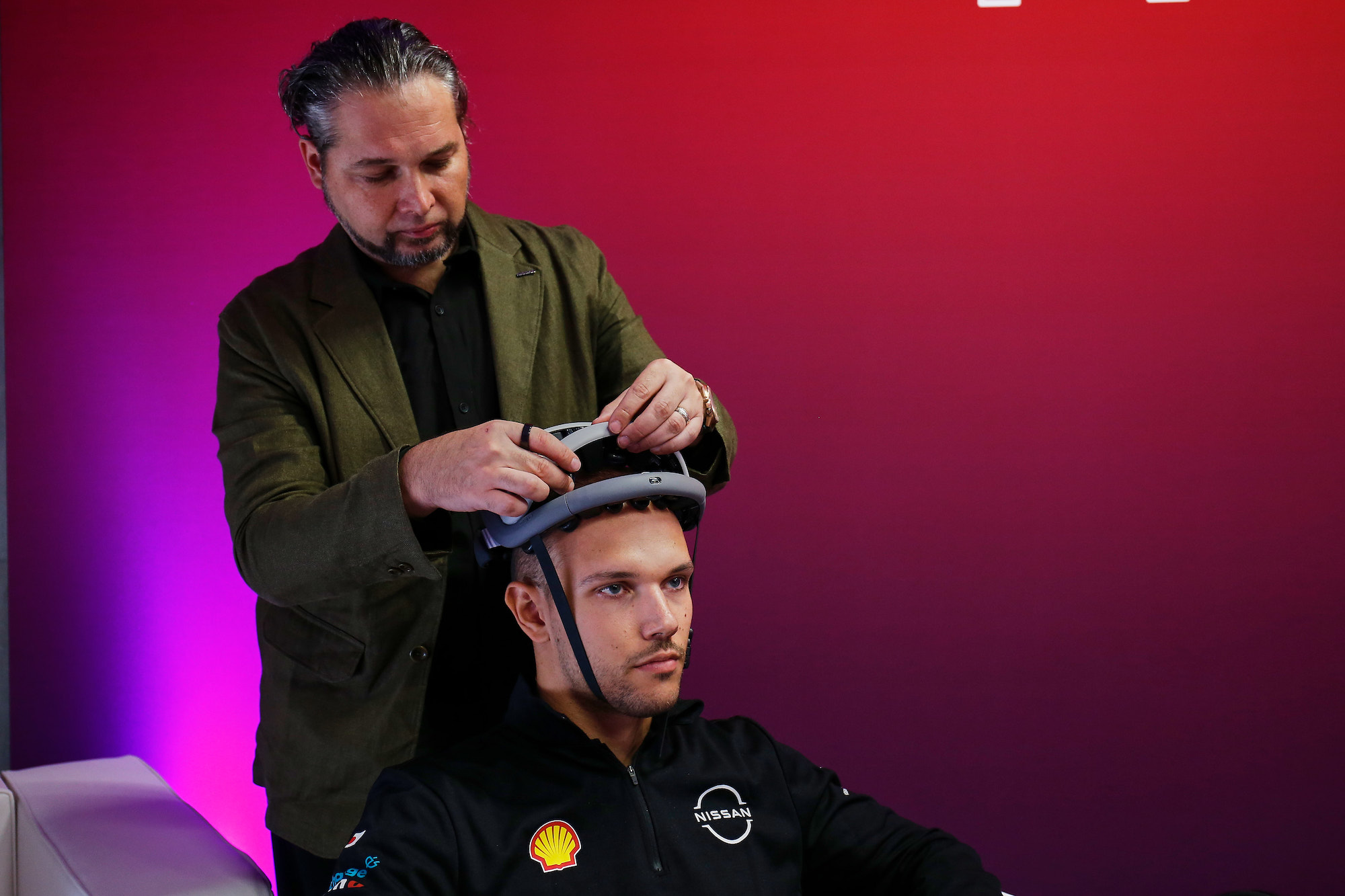Want to feel old? Well, forget Googling what Macaulay Culkin looks like now – simply hop into any 73-plate car and try to work out how to defrost the windscreen.
Over the last 20 years, the technology within our cars has changed at a pace the like of which we’ve never seen before. It is, of course, ultimately for our benefit; but the sheer amount of learning required when hopping into a new car means it doesn’t always feel that way.
For car makers, this is a colossal problem. Both customers and legislators want cars to come stuffed with even more technology, be it for comfort or safety – but if owners can’t get to grips with the systems in the first place, what’s the point? Nissan reckons it has the answer, and it sounds decidedly more science fiction than the average new car handover.
Over the last two years, the Japanese carmaker has been running a rather unusual training programme for its Formula E drivers. In addition to the usual racing driver physical fitness routines, it’s been – quite literally – zapping its drivers’ brains with electricity.
Before you write in, this isn’t some Clockwork Orange homage, but a clinically-recognised – and safe – new method for stimulating brain activity, called direct-current stimulation. It’s already being researched for use in treating depression, recovery after brain injuries and more; but in Nissan’s case, the intended use was simply to help its drivers be the best they could be.
The programme is the pet project of Dr Lucian Gheorghe, senior manager for innovation in Nissan’s user experience team. In his 18 years at the firm’s technical centre in Japan, he’s pioneered the use of brain-scanning tech to help guide everything from safety technology to the design of in-car systems.
‘The first thing that we worked on was actually a version of the around view monitor,’ Dr Gheorghe tells us. ‘Then later on, my mission was to design driving support systems. But we didn’t have tools to say, why is this system better than this other system? So that’s how I went towards… okay, let’s look at how our brains work.’

Brain scanning tech was first used for Nissan’s Formula E team
Having invested in this brain-scanning technology – and applied it to the development of everything from head-up displays to Nissan’s ProPilot ‘self driving’ systems – Gheorghe was called upon to help with the firm’s burgeoning Formula E team.
With assistance from the University of Essex, Nissan set up a research programme into brain training: Could this fledgling, low-current stimulation tech help its drivers become faster than the competition?
The results were impressive: drivers given electrical brain stimulation learned the layout of new tracks 50 per cent faster than those who tried without. These ‘brain-trained’ drivers also improved their car control skills 50 per cent faster, and managed to retain those improvements 22 per cent longer.
Since then, the programme has been officially rolled out across Nissan’s Formula E drivers. Each are given an anonymous-looking grey headset to wear atop their heads for a few minutes per day, and although research is still ongoing, Gheorghe is already looking for uses beyond motorsport.
‘During 2024, I want to have some sort of user research study running in dealerships, to understand a need for this kind of thing,’ he tells us.
‘And if we get positive feedback, and there’s enough to say look, this is something you want to have. You have more people coming to your dealership compared with other ones because you have this.’
How fitting customers with the brain training headset would all fit into the day-to-day operations of a dealership still needs ironing out, but Gheorghe remains excited about the possibilities.
‘It’s becoming complicated to drive now. You have more things that you can take care of,’ he says. ‘The systems can help you out, but also you need to learn how the systems work. The easier we make that learning process, the more likely our customers are to enjoy our products.’

Dr Lucian Gheorghe, pictured left, believes the tech could be used in dealerships to help customers
However, even Gheorghe doesn’t see this technology as a silver bullet. There’s still work to be done on making ever-more complicated cars less daunting for customers in the showroom.
‘When you design a system, the automotive industry is more prone to design based on long term usage, not first time accessibility,’ Gheorghe admits.
‘So we expect our customers to say, “Okay I bought this, and now I’m going to use this.” There’s still a bridge to be crossed for this first thing.’
It could be some time before we see brain training devices turn up in Nissan dealers on these shores, of course – the initial trial is likely to take place nearer to Nissan’s tech partners in Silicon Valley. But Gheorghe also hints that brain-monitoring tech could even start to materialise within Nissan’s cars themselves before too long.
‘There are many things that we worked on, for example, simple things like fatigue: if you can predict that you will be losing attention because something is a simple or boring task,’ he explains.
‘If we can monitor stress, and understand stressful roads, we could go back to the municipality and say, “everybody’s angry at this intersection”.
‘Before I retire, most probably we’ll have technology like that available, but the question is what do you do with that. And our philosophy is improving the experience, and keeping the driver engaged, and providing a positive driving experience, rather than providing a good bed to sleep on.’

































